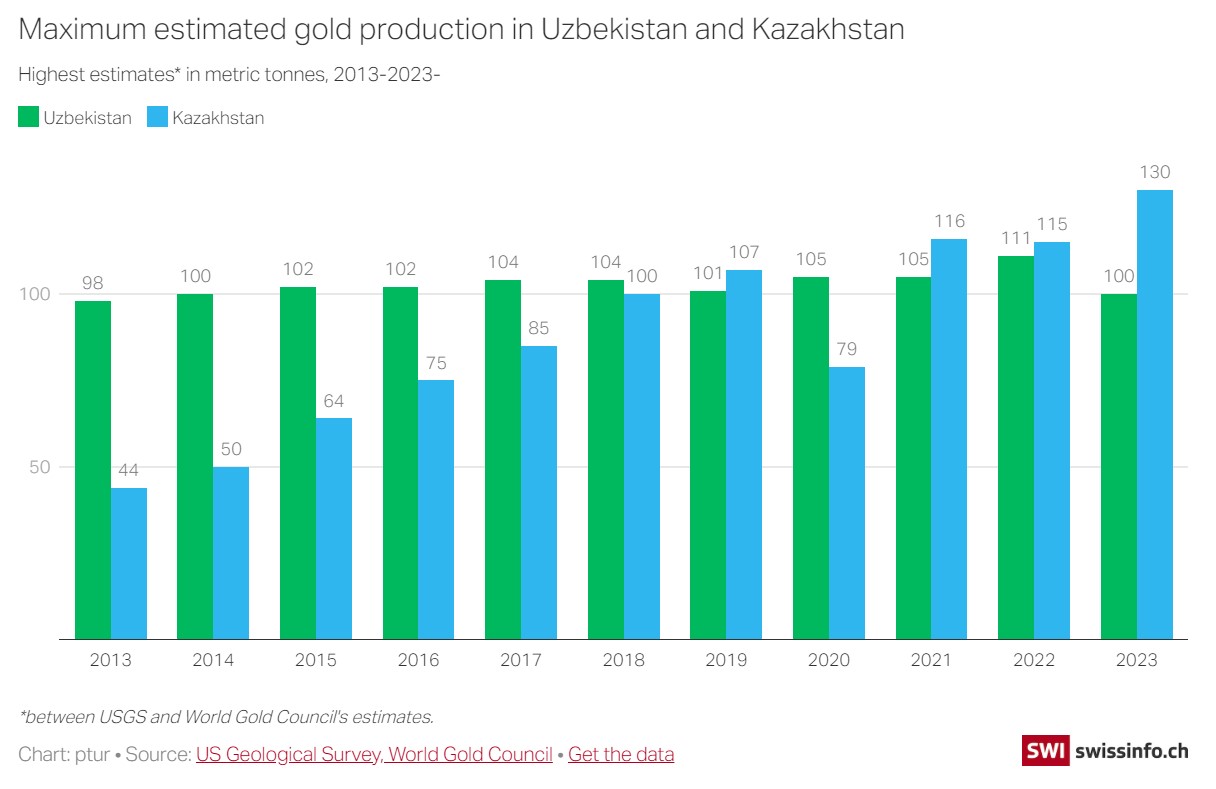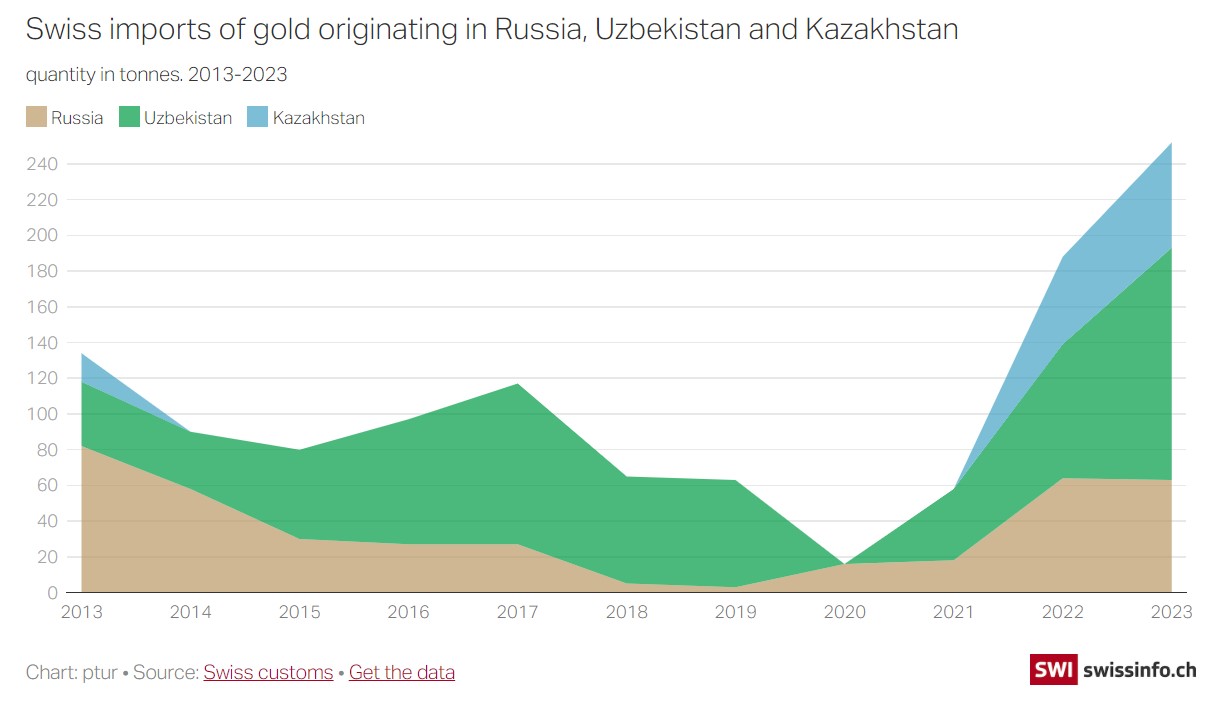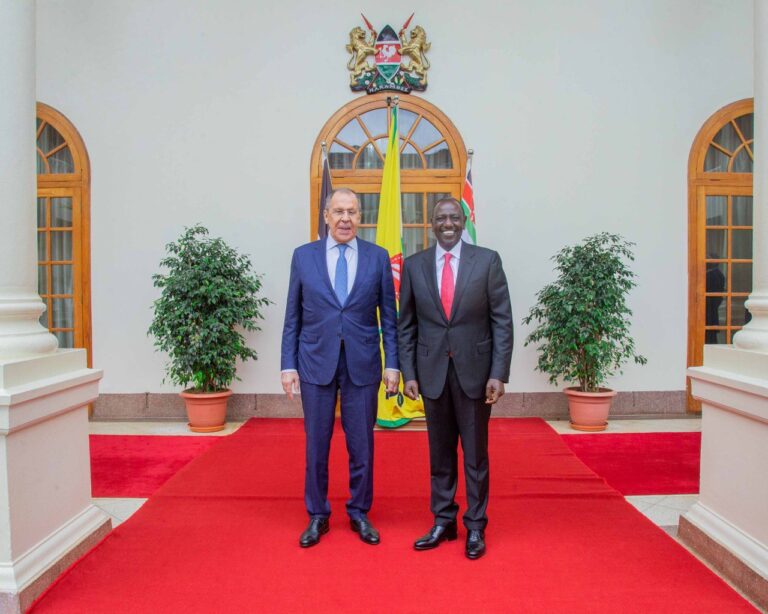After the introduction of international sanctions against Russian metals following the start of the war in Ukraine, Kazakhstan and Uzbekistan have significantly increased their gold exports to Switzerland. Swissinfo journalists have suggested that some of this gold might be coming from Russia, circumventing the sanctions, according to Radio Liberty.
The UK and Switzerland were major buyers of high-quality Russian precious metals. However, following the start of Moscow’s war against Ukraine, Russian metals were sanctioned. This has allowed Kazakhstan and Uzbekistan to increase their gold exports, raising questions about the origins of this gold, Swiss publication Swissinfo reports.
Journalists Dominique Soguel and Pauline Turban from Swissinfo investigated over six months the source of gold imported into Switzerland. By analyzing trade and customs data, they found that Astana and Tashkent exported more gold last year than they produced. In 2023, Britain imported 220 tons of gold from Kazakhstan, and Switzerland received 59 tons. Kazakhstan produced only 130 tons of gold last year. From Uzbekistan, Switzerland received 100 tons of gold, Britain 40 tons, while Uzbekistan produced 100 tons.
Why do sales exceed production? Central banks worldwide are not selling off their gold assets, with Kazakhstan and Uzbekistan being exceptions. The article suggests they might be benefiting from high gold prices, having accumulated reserves.

Central banks of Uzbekistan and Kazakhstan did not respond to Swissinfo’s inquiries.
There is no organization that controls or regulates international gold trade. The London Bullion Market Association (LBMA) monitors the market, sets quality standards, and certifies high-quality gold bars. The LBMA-accredited list includes two refineries in Kazakhstan and two in Uzbekistan. Three of these refineries did not respond to Swissinfo’s requests. Kazzinc, Kazakhstan’s largest precious metal producer, directed inquiries to its main shareholder, Glencore in Switzerland, which declined to comment.
Neil Harby, LBMA’s Chief Technical Officer, believes that gold re-exported from Kazakhstan and Uzbekistan to Switzerland via the UK may have been counted twice in databases. Even so, the amount of metal sold still exceeds production. Harby also mentioned that sellers might have supplied bars produced in previous years.

However, some believe that part of the gold sold by Astana and Tashkent might have been mined in Russia. Mark Pitt, a professor of criminal law at the University of Basel and author of a book on the Swiss gold mining industry, suggested that Central Asian countries might be re-exporting Russian gold.
"I am convinced that the increase in Swiss imports following the start of the war in Ukraine can only be explained by the influx of Russian gold into these two [Central Asian] countries, which was then re-exported to the UK and Switzerland," comments Pitt.
Astana has repeatedly stated that "Kazakhstan will not help Russia circumvent sanctions." However, investigators found that several private companies, registered after the start of the war, were involved in re-exporting sanctioned goods to Russia. Kazakh economists note that the free trade agreement between Kazakhstan and Russia hinders strict control over trade flows.





















